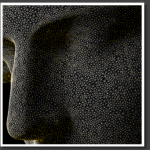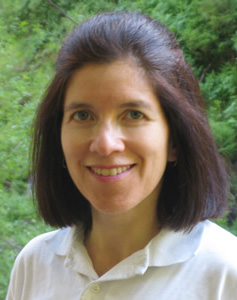The life and death of archaeology: curating virtual objects and material culture in the digital age A DCI Conversation with Dr Michael Carter Ryerson University hosted by the Digital Curation Institute, Faculty of Information, University of Toronto, on Wednesday, 27 November, 4:30pm – 6pm Room BL728, Bissell Building, 140 St George St, Toronto The Digital […]
Category Archives: events
Spooling out in real-time: a DCI Conversation with Devorah Romanek, Maxwell Museum of Anthropology
Spooling out in real-time: the immediacy and implications of digital curation A DCI Conversation with Devorah Romanek Maxwell Museum of Anthropology, University of New Mexico hosted by the Digital Curation Institute, Faculty of Information, University of Toronto, on Friday, 18 October, 4pm -5:30pm Room BL728, Bissell Building, 140 St George St, Toronto Watch the event […]
Content Curation: a DCI Conversation with Virginia Poundstone, Mhz Curationist
Thursday, 19 September, 12 noon – 1:30 pm, Faculty of Information, room BL538, 140 St George St, Toronto DCI Conversations: Content Curation with Virginia Poundstone, founding Content Curation Director of MhZ Curationist in conversation with Costis Dallas Content curation on the Web is perhaps the most widely known form of adding value to cultural resources […]
Prof. David Wachsmuth: Data and the lack of data in the politics of the platform economy
Please join us for this timely talk and conversation at the Faculty of Information at the Bissell building in room BL528 on September 12 at 4pm! Abstract: How does data structure the political economy of Airbnb, Uber, and other leading “platform economy” firms? In this presentation, I answer this question through a spatial-big-data examination of short-term […]
Prof. Andrew Feenberg – Three Approaches to the Internet: Network, World, Individuation and Concretization
DCI Lecture, Feb 14 2019, 4pm Please join us for the next DCI Lecture on February 14 at the Bissell building, BL728 (7th floor), at 4pm. Light refreshments will be served. Prof. Feenberg will speak for about an hour, followed by a moderated Q&A period. Andrew Feenberg is Canada Research Chair in Philosophy of Technology in […]
DCI Lecture: Professor Elizabeth Yakel, “Data Reuse from the Reusers Point of View”
Save the date! Friday, 28 September 2018, 5pm, BL 728 We would like to invite you to the next DCI Lecture, “ Data Reuse from the Reusers Point of View”, given by leading archival studies and digital preservation scholar, Dr Elizabeth Yakel. Please join us at 5pm on September 28, 2018 for a DCI Lecture in BL […]
DCI Lecture: Prof. Brügger, “Understanding the archived web as historical source”
Please join us on October 15, 2018 at 4:15pm in BL 728 for a DCI Lecture by Niels Brügger, Professor in Internet Studies and Digital Humanities at Aarhus University, Denmark. Abstract: Since the online web disappears rapidly, any scholar who wants to include the web of the past in his study has to rely on that someone has archived […]
Values in Computing, Connecting the Bits.
Please join us at 4pm on May 10, 2018 for a DCI Lecture in BL 417 (Bissell building, 4th floor) by this year’s Fellow at the DCI, Dr. Marie Ferrario from the University of Lancaster! Values in Computing, Connecting the Bits. As we watch digital technology unleashing its power on personal, social and organizational aspects of human life, we […]
Book Workshop: Statistics, Knowledge Production and Capitalism
Justin Joque, University of Michigan (presenting) John Cheney-Lippold, University of Michigan The DCI is pleased to host a book workshop on May 2. The event is free, everyone is welcome, but please RSVP (see below)! Workshop description Our finances, politics, media, opportunities, information, shopping and knowledge production are all mediated through statistics and related machine-learning techniques. […]
Prof. Cecilia Aragon: “The Hearts and Minds of Data Science”
Please join us at 4pm on September 21, 2017 for a DCI Lecture in BL 728 (Bissell building, 7th floor) by Prof. Cecilia Aragon from the University of Washington.
Abstract:
Extraordinary advances in our ability to acquire and generate data are transforming the fundamental nature of discovery across domains. Much of the research in the field of data science has focused on automated methods of analyzing data such as machine learning and new database techniques. However, the human aspects of data science, including how to maximize scientific creativity and human insight, how to address ethical concerns, and the consideration of societal impacts, are vital to the future of data science. Human-centered data science is a necessary part of the success of 21st century discovery. I will discuss promising research in this area, describe ongoing initiatives at the UW eScience Institute, and speculate upon future directions for data science.
Bio:
Cecilia Aragon is a Professor in the Department of Human Centered Design & Engineering, Senior Data Science Fellow at the eScience Institute, and Director of the Human Centered Data Science Lab at the University of Washington in Seattle, US. She earned her Ph.D. in computer science from UC Berkeley in 2004. Her research focuses on human-centered data science, an emerging field at the intersection of computer-supported cooperative work (CSCW) and the statistical and computational techniques of data science. She has published over 200 papers in the areas of HCI, CSCW, data science, visual analytics, machine learning, and astrophysics. In 2008, she received the Presidential Early Career Award for Scientists and Engineers (PECASE), the highest honor bestowed by the US government on outstanding scientists in the early stages of their careers.
Lab website: https://depts.washington.edu/hdsl/
Faculty website: http://faculty.washington.edu/aragon







